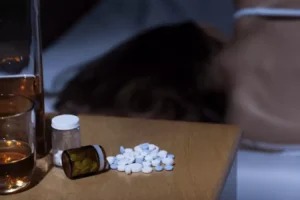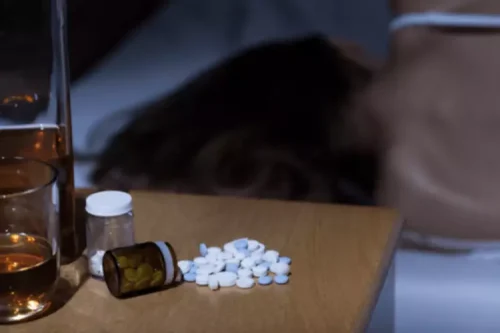
While many of these effects are well-known by the public, there are some effects that people are not as aware about. Brain fog, for example, is sometimes viewed as one of these lesser-known effects. You’ll meet millions of fellow Reframers in our 24/7 Forum chat and daily Zoom check-in meetings.
How Alcohol Affects Dopamine and Brain Health
Doing these exercises for just a few minutes can help get rid of brain fog and enhance your cognitive function. In fact, research has shown that regular exercise can help improve brain function and reduce brain fog. Priority mental health is equally important for overcoming brain fog. Engage in therapy or counseling sessions to address any underlying psychological issues and develop coping mechanisms. Self-care activities like meditation, journaling, or engaging in hobbies can also promote mental well-being and alleviate brain fog. To combat brain fog during and after alcohol detox, it is important to prioritize self-care.

How to Deal with Foggy Brain Menopause & Aid Brain Function
Read on to find out how exactly alcohol changes your dopamine levels, and what you can do to focus on healthier rewards and ultimately become more mindful of your drinking. Occasional brain fog is not necessarily a sign of alcohol dependency. However, if brain fog becomes a frequent occurrence or persists for extended periods, it may indicate excessive https://ecosoberhouse.com/ alcohol use or alcohol use disorder. Apart from the obvious choice that you must monitor and pay close attention to your drinking habits, you can try some remedies to reduce the chances of brain fog. If you have a poor metabolism and poor dietary habits like an untimely meal schedule, poor nutritional intake etc., the effects of alcohol can be longer-lasting and serious.
How Does Alcohol and Brain Fog Impact Early Sobriety?
- Regardless of the cause, alcohol brain fog is something that can be overcome with the right treatment and support.
- Typically, mild brain fog may last anywhere from a few hours to a full day after drinking.
- Brain fog from alcohol could be a result of the brain overworking itself from the production of chemical messengers known as neurotransmitters.
But a person who did not previously experience brain fog may experience it during or after withdrawal. Brain fog during withdrawal does not differ substantially from brain fog during addiction. There are a number of different supplements that can help improve cognitive function and brain health. In addition, exercise can also help to improve your sleep quality, which can further help reduce the symptoms of alcohol fog or brain fog in general.
What factors influence brain fog recovery time?
- We next aimed to elucidate the mechanisms by which CIN dynamics control behavioral flexibility.
- So when you’re managing stress or anything to do with your mood, you can be sure that dopamine is involved.
- Additionally, incorporating mindfulness activities like meditation can play a role in strengthening brain circuits that may have been affected by alcohol use.
- The Wernicke-Korsakoff syndrome is a type of brain damage that is usually caused by overconsumption of alcohol.
Understanding the underlying causes and symptoms can help individuals seek appropriate support and implement strategies to mitigate the effects of brain fog. Alcohol-induced brain fog lasts considerably longer when there is a history of alcoholism or another mental health issue and to treat it. Usually, professional help is necessary, so it is to make lifestyle changes like cutting back on drinking and embracing healthier habits. The journey to recovery from alcohol addiction and brain fog can sometimes require additional support.
Unveiling the Shadows: Understanding Childhood Trauma Tests and Their Impact

You must prioritize self-care and engage in healthy habits to support cognitive function during this time. It’s important to note that not all individuals who quit drinking will experience all of these symptoms or even brain fog. However, those who do may find these symptoms significantly impacting their daily lives. If you or someone you know is experiencing symptoms of alcohol-related brain fog, seeking help and support from a qualified healthcare professional is vital. The right treatment can help you overcome brain fog and promote long-term recovery.

Where to Find Help if I Have a Drinking Problem?

Consistently running on lack of sleep decreases the brain’s ability to solidify memory and clear out toxins, as well as lowers your ability for higher cognitive functions, such as basic multitasking. The causes are not entirely clear, although there are many theories as to what might be causing it. Some suggest that heavy drinking leads to nutritional deficiencies in key vitamins and minerals and dehydration in the body, which directly impacts brain functioning. If alcohol brain fog you or someone you know is experiencing brain fog due to alcohol abuse, don’t hesitate to ask for help. Contact The Providence Projects today to learn more about our residential rehab programme and start your journey towards recovery. However, brain fog can persist for extended periods for some individuals and may require professional intervention.
Ozempic and its cousins started as type 2 diabetes drugs, and they help your body use insulin to regulate blood sugar. Alcohol and brain fog may be related to the significant changes in the brain from long-term alcohol use. Blackouts are alcoholism common with heavy drinking, which can result in side effects of alcohol after use. Even for those without a prior history of depression, alcohol can create the conditions for depressive symptoms to emerge. Chronic alcohol consumption alters the brain’s communication pathways and neurotransmitter levels, particularly those involving serotonin and dopamine. Some people do seem to experience brain fog more easily after drinking.
